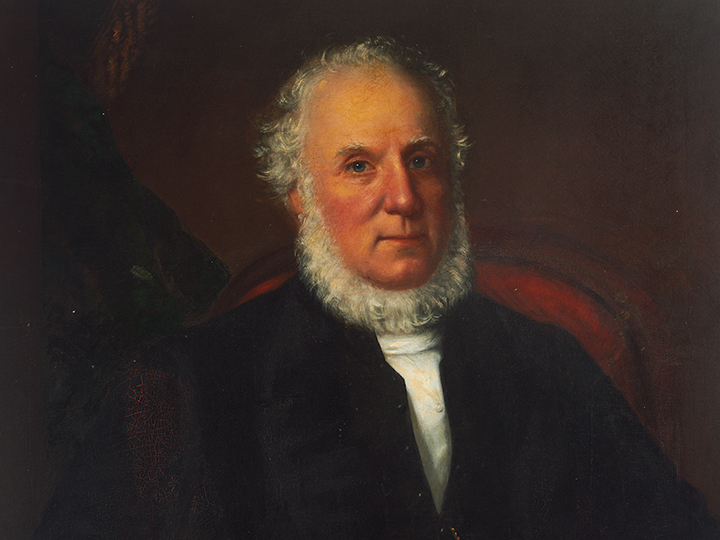As George's law firm flourished, he committed himself more formally to civic and philanthropic causes.
Advocating that the poor, rather than convicts, should be employed on public works, he became a councillor of Bourke Ward in the first election for the Municipal Council of Sydney in 1842. He was then elected an alderman and presided over the first meeting of the council. In 1844 he was appointed mayor of the City of Sydney and served until the council was dismissed in 1853, when it found itself unable to deliver water and sewerage services, due to a lack of funds. He was also a member of the New South Wales Legislative Council from 1845 until his death in 1877.

'I know of no public man whose record for unselfish public service can equal that of George Allen'.
Charles Bertie, Sydney Municipal Council librarian
One cause close to George’s heart was access to quality education. He was aware of the advantages his own education had afforded him, and worked hard to see these opportunities extended to the children of Sydney. In 1825, at the age of twenty-four, George helped found Sydney Public Free Grammar School. Later, he joined the government-formed Council of Education. He was succeeded on the council by his son Wigram, who shared his father’s commitment to education. In 1859 George was made a member of the Senate of the University of Sydney, a position he held until he died.
George was a devoted member of the Methodist Church and a long-serving secretary both to the Wesley Mission and Australia's first charity, The Benevolent Society. He served on numerous corporate boards, and over the course of his life was president of the Bank of New South Wales, chairman of the Australian Gas Light Company and vice-president of the New South Wales Savings Bank.
In 1855, at the age of fifty-four, George retired from the firm and requested his name be removed from the Roll of Solicitors as he had ceased to practise. He left the firm in the hands of his son Wigram but remained active with his civic and business interests until 1873, when his deteriorating vision made him housebound. His passing on 3 November 1877 was met with great sadness in the community. The newspapers praised highly the man who had made such a significant contribution to the colony’s progress.
The Sydney Morning Herald said, 'It is not often we lose a citizen who has gained a more widespread esteem among all classes and all creeds in the community than Mr Allen.'
